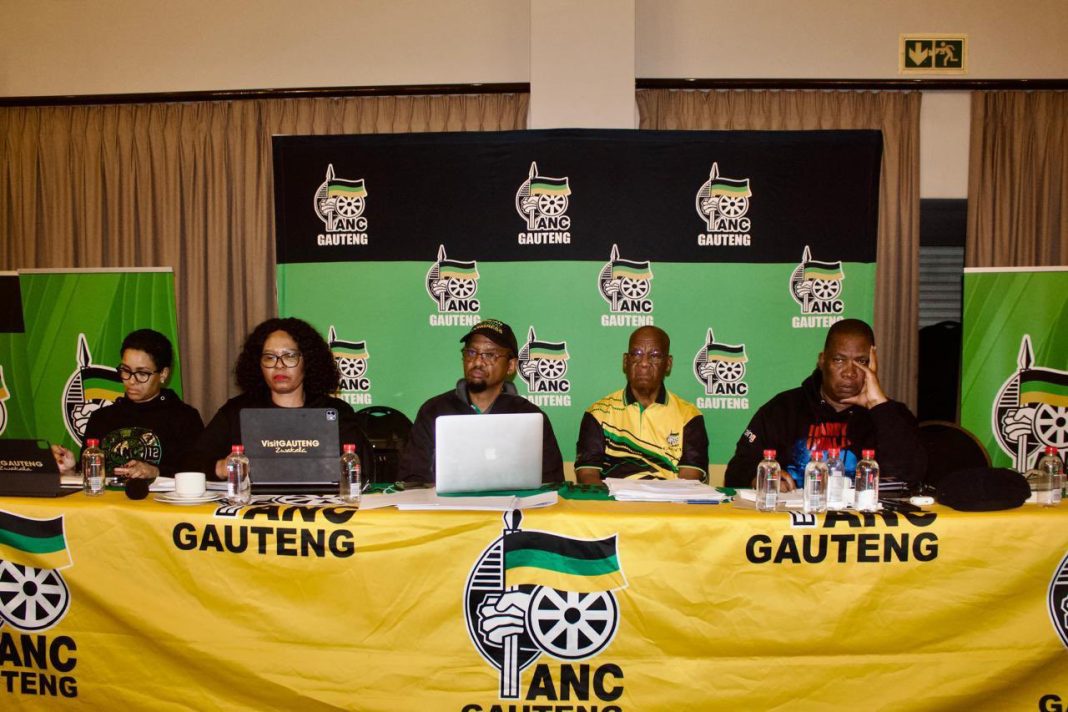By Akani Nkuna
The ANC Gauteng Provincial Task Team (PTT) has reaffirmed its commitment to unity, internal renewal, and community engagement following its meeting held on Friday.
The PTT, announced in February, is led by ANC veteran Amos Masondo and former Gauteng Chairperson Panyaza Lesufi as co-convenors.
Its establishment followed the reconfiguration of the Gauteng Provincial Executive Committee (PEC), a decision taken by the ANC National Executive Committee (NEC) in response to poor electoral outcomes and weak branch structures.
In a media statement issued on Sunday, the PTT reflected on its progress since inception, stating it has actively pursued its NEC mandate under the guidance of Secretary General Fikile Mbalula.
ANC Gauteng Provincial Spokesperson Mzi Khumalo noted that since its formation, the PTT has held multiple engagements, including handover sessions with former PEC officials to ensure a smooth transition and governance continuity.
The team also met with ANC Regional Office Bearers to assess regional dynamics and compile key issues into a report presented to the PTT Working Committee.
“After thorough deliberation, the PTT Working Committee has reasserted its mandate and directed PTT Officials to compile a detailed report on the status of regional roadmaps leading to the upcoming Regional Conferences,” said Khumalo.
Khumalo acknowledged that while some progress has been made, the PTT recognises the urgent need to reshape the public narrative around the ANC’s provincial governance and to deepen its connection with communities.
“To ensure accountability, the PTT will rigorously implement the national accountability framework, holding all elected leaders and government deployees accountable at every level,” he added.
Lesufi, ANC Gauteng Co-Provincial Convener, also reflected on the enduring legacy of struggle icons Chris Hani and Solomon Mahlangu and urged ANC members to honour their contributions through principled action and a continued fight for justice.
He highlighted two critical areas needing attention: achieving economic emancipation and addressing the land question.
Lesufi warned that internal inertia has made the ANC vulnerable to political attacks from within and outside the movement.
He stressed the importance of approaching this critical period with courage and resilience, while also cautioning against foreign interference in South Africa’s domestic affairs.
“There has been a coordinated campaign carried out in alliance with racist formations such as AfriForum, the Democratic Alliance, and the Freedom Front Plus, all of whom have fuelled deliberate disinformation campaigns targeting South Africa and the ANC,” said Lesufi.
Reaffirming its mandate, the PTT has committed to compiling a consolidated report on the state of the regions, including an assessment of the Roadmaps to Regional Conferences submitted by the four regions preparing for those conferences.
The PTT has also been tasked with strengthening communication and engagement between ANC structures and communities across Gauteng, while rebuilding alliances with sectoral organisations and grassroots movements.
Despite progress, the PTT admits more work is required to rally communities and shape a constructive narrative around the ANC and provincial government’s work.
“In order to ensure implementation of the above tasks, the PTT will adopt a minimum Programme of Action (PoA) to be implemented over the next six months,” said Khumalo.
From the governance reports, the PTT highlighted several pressing concerns, including the urgent need for repairs and maintenance of infrastructure in municipalities — particularly electricity, water, roads, streetlights, and community facilities.
The team further called for improved safety and security through increased use of technology and stronger intergovernmental cooperation to address persistent service delivery challenges.
“Priorities are water, cable theft and vandalism, non-functional traffic lights, potholes, crime and lawlessness, mushrooming of informal settlements, electricity (particularly load shedding and load reduction), an increase in Gender-Based Violence and Femicide, drug abuse, poor service at hospitals and clinics, a lack of schools, failing infrastructure in CBDs, and unemployment,” Khumalo said.
INSIDE POLITICS

